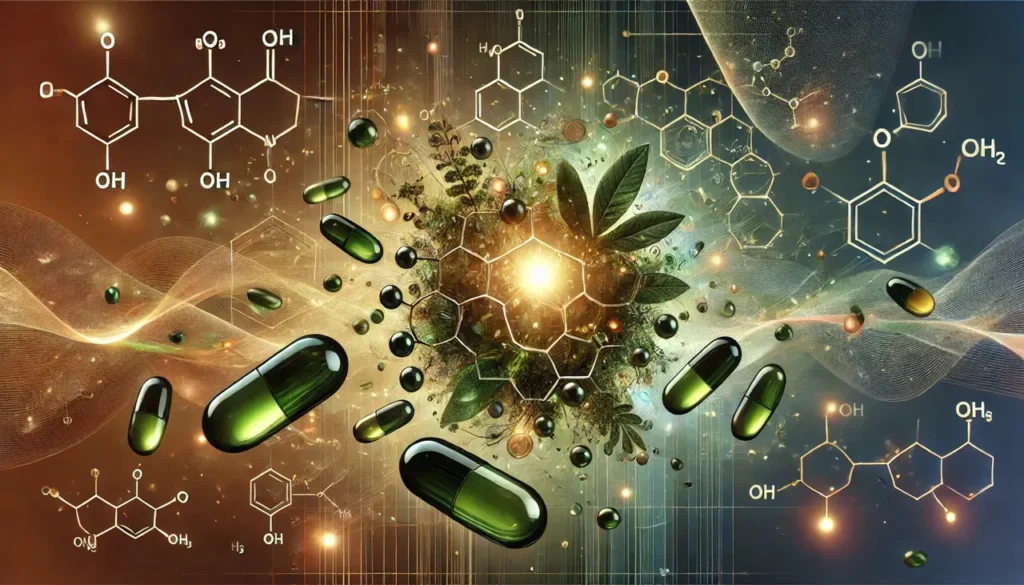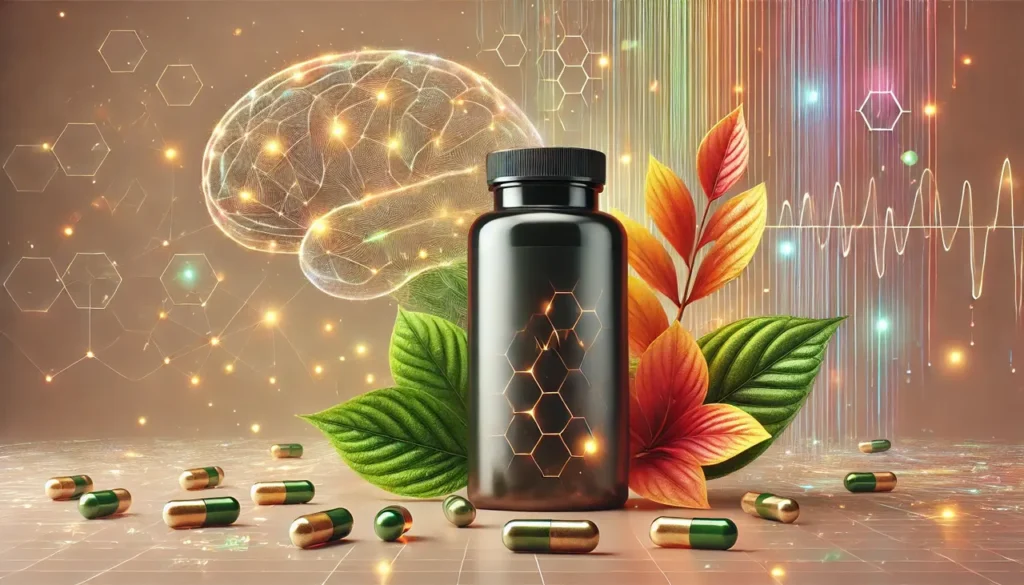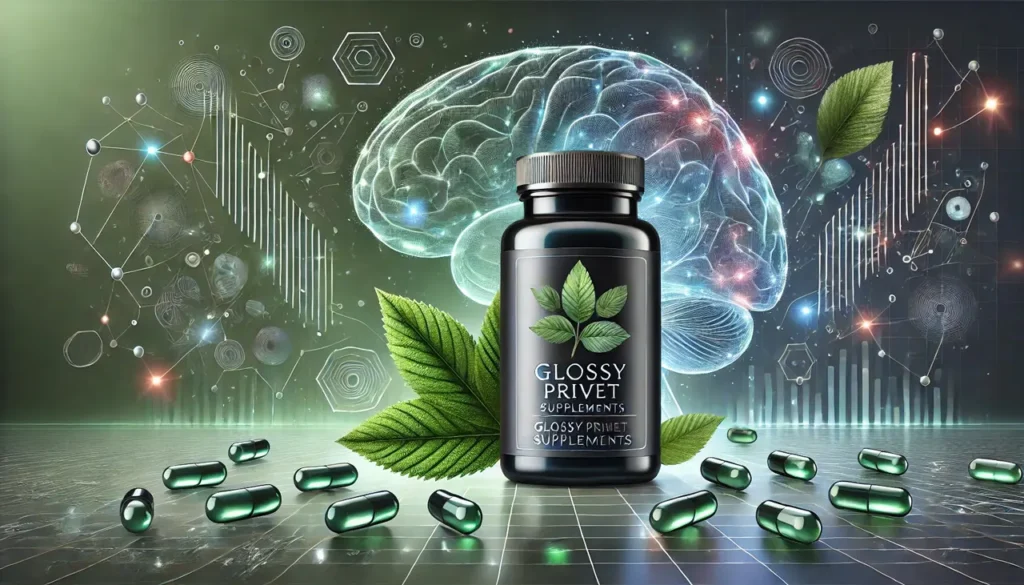Glossy Privet, scientifically known as Ligustrum lucidum, is a small evergreen tree native to China that has been traditionally used in Chinese medicine for its health-supporting properties. Recently, Glossy Privet has gained attention for its potential role as a nootropic supplement, valued for cognitive enhancement and overall brain health. This article delves into the origins, chemistry, physiological mechanisms, potential nootropic benefits, dosing guidelines, side effects, and interactions associated with Glossy Privet, presenting the latest findings in the context of its safe use.
You May Also Like:
Sources of Glossy Privet
Glossy Privet is an ornamental plant commonly found across Asia, Europe, and North America. Traditionally, its leaves and berries have been used in Chinese medicine as a tonic to support liver health, immunity, and even longevity. The medicinal components of Glossy Privet are generally harvested from the plant’s fruits, which contain bioactive compounds that are believed to benefit health.
In terms of chemical composition, the primary active ingredients in Glossy Privet are oleanolic acid and ursolic acid. These compounds are known for their anti-inflammatory, antioxidant, and immune-supporting properties. Other bioactive elements include polysaccharides, flavonoids, and glycosides, which together may offer a range of health benefits, particularly in supporting cognitive function. These components are also found in supplements, available in capsules, powders, and tinctures, with the fruit extract being the most common form marketed for nootropic purposes.
Support Memory and Mental Sharpness with Trusted Potassium Supplements—Order Now on Amazon!

Chemistry of Glossy Privet
The effectiveness of Glossy Privet as a supplement is largely attributed to its rich phytochemistry, especially the presence of oleanolic acid and ursolic acid. These compounds belong to the triterpenoid class, recognized for their strong anti-inflammatory and antioxidant effects. Triterpenoids, as well as various flavonoids in Glossy Privet, contribute to its potential brain-protective qualities by neutralizing free radicals and reducing oxidative stress, both of which are critical in maintaining cognitive health and preventing neurodegenerative conditions.
- Oleanolic Acid: This compound is a pentacyclic triterpenoid that has shown promise in reducing inflammation and oxidative stress. In brain health, oleanolic acid may help mitigate neuroinflammation and support cellular resilience, thereby protecting against cognitive decline.
- Ursolic Acid: Similar to oleanolic acid, ursolic acid also belongs to the triterpenoid family and shares comparable antioxidant and anti-inflammatory actions. Studies have indicated its neuroprotective effects, including potential modulation of acetylcholine, a neurotransmitter vital for memory and learning.
These compounds not only support cognitive health but also bolster immune function and metabolic regulation, adding to Glossy Privet’s appeal as a comprehensive wellness supplement.

Physiological Mechanisms and Nootropic Potential
Glossy Privet’s nootropic benefits are thought to derive from several mechanisms that involve protection against oxidative stress, inflammation, and the preservation of cellular health in the brain.
- Antioxidant Defense: By scavenging free radicals, Glossy Privet’s active compounds help reduce oxidative damage to neurons, potentially mitigating the effects of aging on cognitive functions. The antioxidants in Glossy Privet also help in regenerating glutathione, a critical antioxidant for brain health.
- Anti-Inflammatory Action: Neuroinflammation is a primary contributor to cognitive decline. Oleanolic and ursolic acids in Glossy Privet have been shown to reduce neuroinflammatory markers, which may help in maintaining mental clarity and focus over time.
- Neuroprotection and Cellular Health: The bioactive compounds in Glossy Privet support the maintenance of cellular structures and metabolic processes, particularly in the hippocampus, the area of the brain responsible for memory and learning. This cellular protection may improve resilience against age-related cognitive decline and other brain-health issues.
- Mood and Stress Adaptation: Some traditional uses suggest Glossy Privet might help reduce stress and support mood balance. Though more research is needed, it’s hypothesized that the supplement’s antioxidant and anti-inflammatory effects could indirectly promote emotional stability and focus.

Nootropic Benefits of Glossy Privet
- Enhanced Memory and Learning: The antioxidant action of Glossy Privet helps protect neurons from damage, which is particularly beneficial for memory-related regions of the brain. Its neuroprotective properties may also support learning capabilities by maintaining optimal brain cell function.
- Improved Focus and Mental Clarity: By reducing oxidative and inflammatory stress in the brain, Glossy Privet could promote mental clarity and sustained focus. This aspect is especially advantageous in situations of high mental workload or aging, where cognitive clarity tends to decline.
- Protection Against Cognitive Decline: Given its neuroprotective abilities, Glossy Privet may have a preventive effect against neurodegenerative conditions like Alzheimer’s disease. Animal studies have shown potential benefits in reducing amyloid plaque buildup, a hallmark of Alzheimer’s disease, although human studies are still needed to confirm these findings.
- Mood and Stress Relief: Glossy Privet may provide subtle mood-stabilizing effects due to its capacity to reduce brain inflammation, which has been associated with stress and mood disorders. This benefit can aid overall cognitive health, as reduced stress positively influences memory and focus.
- Enhanced Synaptic Plasticity: Glossy Privet may support synaptic plasticity, the brain’s ability to adapt and reorganize connections between neurons. Improved synaptic plasticity is crucial for learning new skills and adapting to new information. This benefit may be particularly helpful in enhancing cognitive resilience and adaptability over time.
- Increased Neurogenesis: Some studies suggest that the bioactive compounds in Glossy Privet could promote neurogenesis, or the formation of new neurons. Increased neurogenesis, particularly in the hippocampus, could aid memory formation and overall brain health, providing a foundation for long-term cognitive support.
- Protection Against Oxidative Damage: Glossy Privet’s potent antioxidant properties help shield brain cells from oxidative damage due to environmental factors and aging. This protective effect may contribute to a reduction in cellular wear over time, promoting longevity in cognitive function and preserving mental clarity.

Dosage and Supplementation Guidelines
Currently, there is no established recommended daily dose for Glossy Privet, especially when used as a nootropic. However, traditional dosages typically range between 300 mg and 1,000 mg of extract per day, with exact amounts depending on the concentration and individual needs.
- General Nootropic Dosage: For cognitive enhancement, a dosage between 500-800 mg daily of Glossy Privet extract may be appropriate, based on anecdotal evidence and traditional use.
- Supplement Forms: Glossy Privet is available as capsules, tablets, powders, and tinctures. Capsules and tablets are often preferred for consistent dosing, while powders may be mixed into beverages for easier consumption.
As Glossy Privet’s effects on cognitive health are still being researched, individuals interested in using it for nootropic purposes should start with a lower dosage and gradually increase it to assess tolerance and effectiveness.
Fuel Your Mind and Boost Cognitive Performance with High-Quality Bacopa Monnieri—Shop Now on Amazon!

Side Effects and Safety
While Glossy Privet is generally well-tolerated, especially in traditional doses, some individuals may experience mild side effects. The most common side effects include digestive discomfort, such as nausea or an upset stomach, particularly if taken on an empty stomach or in large doses. Rarely, individuals may experience skin reactions, as Glossy Privet has been associated with photosensitivity in sensitive individuals.
- Liver and Kidney Considerations: Individuals with pre-existing liver or kidney conditions should exercise caution when taking Glossy Privet, as the supplement is processed by these organs, and high doses could theoretically lead to increased metabolic load.
- Pregnancy and Breastfeeding: Pregnant or breastfeeding women should avoid Glossy Privet due to the lack of research on its safety in these populations.
- Allergic Reactions: Although uncommon, some users may be allergic to compounds in Glossy Privet. Anyone with a history of plant allergies should approach Glossy Privet with caution, starting with a minimal dose under supervision.
Interactions with Other Supplements and Medications
Glossy Privet may interact with certain medications and other supplements, so individuals taking multiple supplements or prescriptions should consult a healthcare provider.
- Anticoagulant Medications: Glossy Privet’s oleanolic and ursolic acids have mild blood-thinning effects, which may potentiate the effects of anticoagulants such as warfarin. Those on blood-thinning medications should avoid Glossy Privet unless advised by a healthcare provider.
- Immunosuppressive Drugs: Given Glossy Privet’s immune-modulating properties, it may interfere with immunosuppressive medications prescribed for autoimmune conditions or organ transplant patients.
- Other Nootropics: Combining Glossy Privet with other nootropic supplements, such as Ginkgo biloba or racetams, could theoretically enhance cognitive benefits. However, it may also increase the risk of overstimulation or mild side effects like headaches or nervousness, so moderation is advised.
- Liver Metabolism: Some evidence suggests that triterpenoids, such as oleanolic acid, interact with liver enzymes, potentially affecting the metabolism of certain drugs. Those on medications heavily reliant on liver processing, like certain antidepressants or antipsychotics, should consider this when supplementing.
Risks for Individuals with Certain Health Conditions
Certain individuals should avoid or limit Glossy Privet supplementation due to potential risks:
- Liver and Kidney Diseases: Given that Glossy Privet is metabolized in the liver and kidneys, individuals with compromised function in these organs should use it cautiously.
- Hormonal Conditions: While evidence is limited, those with hormonal imbalances should exercise caution, as Glossy Privet may influence hormonal pathways, particularly estrogen.
Unlock Brain Power and Daily Energy with Advanced Panax Ginseng Supplements—Shop Now on Amazon!

Should You Consider Glossy Privet as a Nootropic?
Glossy Privet presents a promising profile as a natural nootropic, thanks to its unique mix of antioxidant, anti-inflammatory, and neuroprotective properties. With potential benefits in cognitive clarity, memory, and focus, Glossy Privet may serve as a valuable addition to a cognitive health regimen.
However, like any supplement, it’s essential to use Glossy Privet responsibly, starting with a lower dose and consulting a healthcare professional, especially if you have pre-existing health conditions or take medications that could interact with its active ingredients. While more studies are needed to confirm its effectiveness and safety profile, Glossy Privet offers an intriguing option for those seeking natural cognitive support.

References:
- Antioxidative characteristics of aqueous and ethanol extracts of glossy privet fruit. Retrieved from: https://www.sciencedirect.com/science/article/abs/pii/S0308814608007899
- Glossy Privet. Retrieved from: https://www.rxlist.com/supplements/glossy_privet.htm
- Isolation of substances from glossy privet (Ligustrum lucidum Ait.) inhibiting the mutagenicity of benzo[a]pyrene in bacteria. Retrieved from: https://pubmed.ncbi.nlm.nih.gov/7690454/
- Glossy Privet Fruit Extract. Retrieved from: https://dsld.od.nih.gov/ingredient/Glossy%20Privet%20Fruit%20Extract
Important Note: The information contained in this article is for general informational purposes only, and should not be construed as health or medical advice, nor is it intended to diagnose, prevent, treat, or cure any disease or health condition. Before embarking on any diet, fitness regimen, or program of nutritional supplementation, it is advisable to consult your healthcare professional in order to determine its safety and probable efficacy in terms of your individual state of health.
Regarding Nutritional Supplements Or Other Non-Prescription Health Products: If any nutritional supplements or other non-prescription health products are mentioned in the foregoing article, any claims or statements made about them have not been evaluated by the U.S. Food and Drug Administration, and such nutritional supplements or other health products are not intended to diagnose, treat, cure, or prevent any disease.


